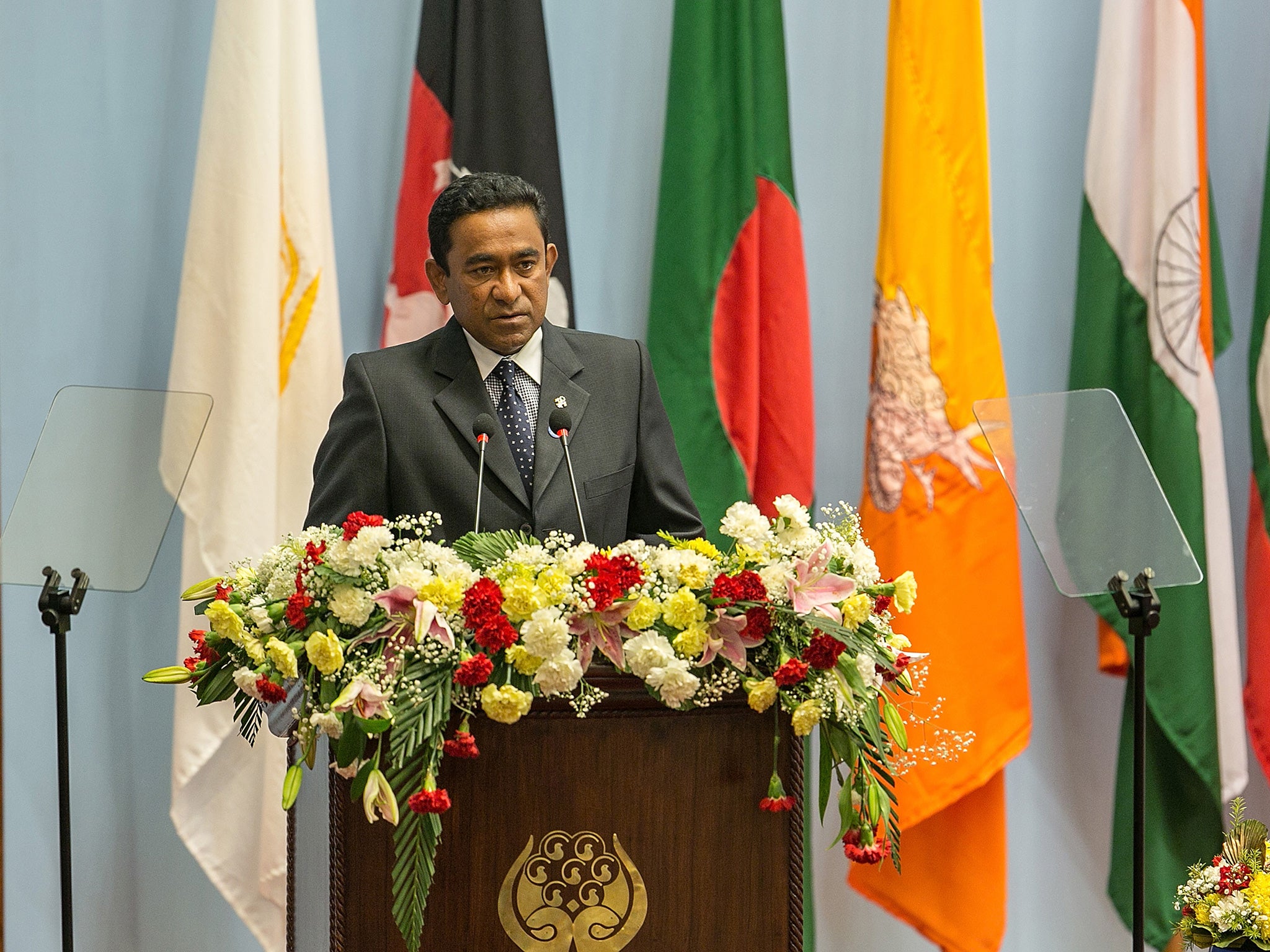Maldives declares state of emergency following 'assassination attempts and unrest'
A bomb was located near the presidential resident after an explosion on his boat last month

Your support helps us to tell the story
From reproductive rights to climate change to Big Tech, The Independent is on the ground when the story is developing. Whether it's investigating the financials of Elon Musk's pro-Trump PAC or producing our latest documentary, 'The A Word', which shines a light on the American women fighting for reproductive rights, we know how important it is to parse out the facts from the messaging.
At such a critical moment in US history, we need reporters on the ground. Your donation allows us to keep sending journalists to speak to both sides of the story.
The Independent is trusted by Americans across the entire political spectrum. And unlike many other quality news outlets, we choose not to lock Americans out of our reporting and analysis with paywalls. We believe quality journalism should be available to everyone, paid for by those who can afford it.
Your support makes all the difference.The Maldives has declared a state of emergency following weeks of unrest that has included the arrest of the vice-president on treason charges and the discovery of a bomb near the president’s official residence.
According to the official twitter account of the Ministry of Foreign Affairs, the tiny island nation in the Indian Ocean declared a 30-day state of emergency.
In his speech to the nation on Tuesday, President Yameen Abdul Gayoom said an explosion last month on his speedboat was "an act of greed to attain power," an apparent reference to his vice president, who is being held for questioning over the alleged assassination attempt.
The FBI, which investigated at the Maldives' request, has said it found no evidence a bomb had caused the boat explosion. The government said Gayoom was not sitting in his usual seat on the boat and thus was not hurt by the blast, which injured his wife, an aide and a bodyguard.

Vice President Ahmed Adeeb was among nine people arrested on suspicion of involvement in the boat explosion. The Maldives Constitution provides for the vice president to assume power if the president dies or incapacitated.
Gayoom was speaking on the 27th anniversary of a coup attempt to unseat his half-brother with the help of mercenaries from neighboring Sri Lanka. Maumoon Abdul Gayoom, who ruled Maldives from 1978 to until losing in the country's first democratic election in 2008, survived the attempt.
The president said that a lesson learned from the coup attempt was that there were people within and abroad who desire to destroy the peace of the Maldives and the "dangerous attack of the presidential speedboat ... was one such act of greed to attain power."
The government said the device found in a parked vehicle at his official residence Monday was deactivated by the military. Home Minister Umar Naseer said the bomb had been made with a dynamite stick and was connected to a remote control device.
Naseer said he suspected Gayoom was being targeted again "by the same people" who failed to succeed in the boat explosion. He did not say who they were.
Gayoom does not live at the official residence but uses it frequently for meetings.
Military cordoned off and evacuated people near the residence and arrested three journalists from a pro-opposition television station for entering the cordoned area.
Maldives is an Indian Ocean archipelago with 350,000 people, mostly Sunni Muslim, and is known for its beaches and luxury resorts. It has had a difficult transition to democracy since holding its first multiparty election in 2008, with the first democratically elected leader being jailed for 13 years under the country's terrorism law. The trial was criticized both locally and internationally for an apparent lack of due process.
AP
Join our commenting forum
Join thought-provoking conversations, follow other Independent readers and see their replies
Comments